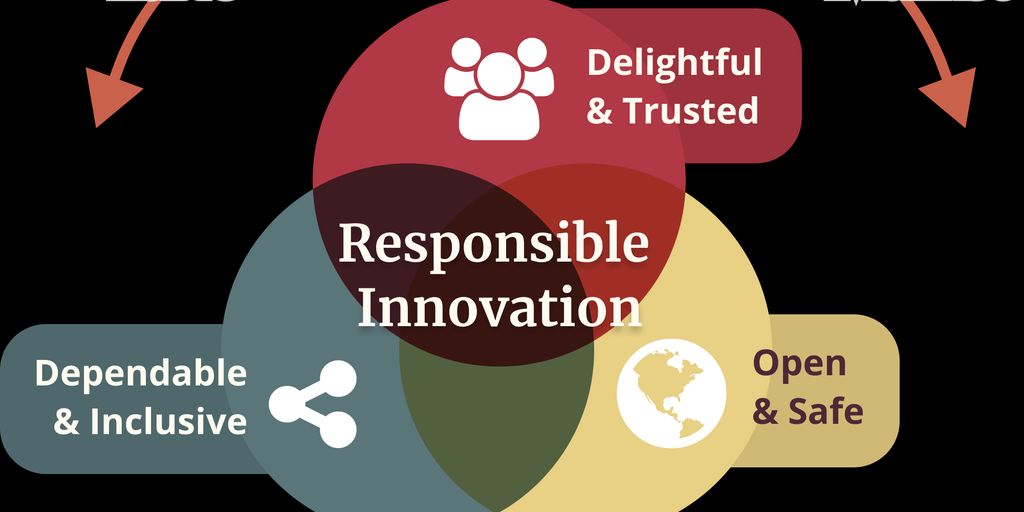The role of Artificial Intelligence (AI) in streamlining business processes is truly transformative. AI redefines efficiency and effectiveness across various business domains, from inventory management and customer service to fraud detection and financial decision-making. Its ongoing evolution promises not just incremental changes but a radical reimagining of how businesses operate and succeed in an increasingly digital world.
Key Takeaways
- AI seamlessly integrates with existing business systems, enhancing overall efficiency.
- AI-driven automation of repetitive tasks frees up human resources for more strategic activities.
- Data analysis and decision-making are significantly improved through AI's advanced processing capabilities.
- Real-world examples and case studies illustrate the practical benefits and successes of AI implementation.
- Future trends in AI promise further optimization and innovative applications in various business sectors.
The Synergy of AI and Business Processes
Integrating AI within business processes is akin to weaving threads of innovation and efficiency into the fabric of an organization. The resultant synergy is transformative, allowing businesses to reshape their operational paradigms, make informed decisions, and elevate their productivity levels. In this section, we will explore how AI streamlines operations, its role in decision-making processes, and how it enhances productivity, reflecting its symbiotic relationship with business processes.
Understanding AI's Role in Streamlining Business Processes
Key Areas Where AI Makes an Impact
AI is revolutionizing various business domains by enhancing efficiency and productivity. From inventory management to customer service, AI-driven solutions are making significant strides. Key areas include supply chain optimization, predictive maintenance, and personalized marketing.
AI in Different Industries
Different industries are leveraging AI to solve unique challenges. In healthcare, AI assists in diagnostics and patient care. The retail sector uses AI for inventory management and customer personalization. Financial services benefit from AI in fraud detection and risk management.
Success Stories of AI Implementation
Numerous companies have successfully integrated AI into their operations. For instance, a leading retailer used AI to optimize its supply chain, resulting in a 20% reduction in costs. Another example is a financial institution that implemented AI for fraud detection, significantly reducing fraudulent activities.
AI is not just a tool but a strategic asset that can transform business processes and drive success.
Automation of Repetitive Tasks
AI Tools for Task Automation
AI-powered tools are revolutionizing the way businesses handle repetitive tasks. From data entry to document processing, these tools can manage mundane activities with remarkable efficiency. This not only saves time but also reduces the likelihood of human error. Employees can then focus on more strategic and creative projects, driving innovation and growth.
Industries Benefiting from Automation
Various industries are reaping the benefits of AI-driven automation. In manufacturing, AI-equipped robots perform repetitive assembly tasks with precision. The financial sector uses AI for transaction processing and compliance checks, enhancing operational efficiency. Even customer service departments leverage AI to handle inquiries, providing quick and accurate responses.
Case Studies of Automation Success
- Retail Industry: A major retailer implemented AI to automate inventory management, resulting in a 20% reduction in stockouts and overstock situations.
- Healthcare: Hospitals are using AI to automate patient data entry, significantly reducing administrative workload and improving patient care.
- Finance: A leading bank adopted AI for fraud detection, cutting down fraudulent activities by 30% and saving millions in potential losses.
Embracing AI for automating repetitive tasks not only boosts efficiency but also empowers employees to contribute more meaningfully to the business's strategic goals.
Data Analysis and Decision Making
AI in Data Processing
AI enables businesses to analyze vast amounts of data quickly and accurately, leading to informed decision-making. Predictive analytics algorithms forecast market trends, customer behavior, and demand patterns, helping businesses strategize and allocate resources effectively.
Enhancing Decision Making with AI
AI-powered decision-making tools supply real-time insights, enabling businesses to respond promptly to changing market conditions and customer needs, thus maintaining a competitive edge. Leaders can make decisions grounded in data and analytics, giving organizations a clearer understanding of market dynamics, customer preferences, and emerging risks.
Predictive Analytics in Business
Predictive analytics and data-driven insights give organizations a clearer understanding of market dynamics, customer preferences, and emerging risks, allowing for more strategic planning and risk management. Moreover, AI-powered decision-making tools supply real-time insights, enabling businesses to respond promptly to changing market conditions and customer needs, thus maintaining a competitive edge.
Fundamentals of AI in Business Processes
Core Components of AI
To fully grasp AI's role in streamlining business processes, it's essential to understand the core components of AI. These include machine learning, natural language processing, and deep learning. Each of these components plays a critical role in enhancing decision-making, optimizing operations, and driving innovation.
How AI Differs from Traditional Automation
AI goes beyond traditional automation by introducing a level of intelligence and learning capability. While traditional automation follows a set of predefined rules, AI can learn from data and improve its performance over time. This makes AI a game-changer in various business operations.
Building Blocks of AI in Business
The building blocks of AI in business include data, algorithms, and computing power. Data serves as the foundation, algorithms process this data to generate insights, and computing power enables the execution of complex calculations. Together, these elements create a robust AI system capable of transforming business processes.
Understanding the fundamentals of AI is crucial for any business looking to leverage this technology for operational efficiency and innovation.
The Future Prospects of AI in Business Process Optimization
The role of Artificial Intelligence (AI) in streamlining business processes is truly transformative. AI redefines efficiency and effectiveness across various business domains, from inventory management and customer service to fraud detection and financial decision-making. Its ongoing evolution promises not just incremental changes but a radical reimagining of how businesses operate and succeed in an increasingly digital world.
Operational Streamlining with AI
Automating Routine Tasks
AI is revolutionizing the way businesses handle routine tasks. By automating repetitive and time-consuming activities, AI allows companies to focus on more strategic and creative endeavors. This shift not only enhances productivity but also reduces the likelihood of human error. For example, AI-powered bots can manage customer inquiries, process data, and handle basic administrative tasks efficiently.
Improving Productivity with AI
The integration of AI into business processes significantly boosts productivity. AI tools can analyze vast amounts of data quickly, providing insights that help in making informed decisions. This rapid data processing capability means that businesses can respond to market changes more swiftly and effectively. Additionally, AI can optimize workflows, ensuring that resources are used efficiently and tasks are completed faster.
Strategic Growth Through AI
AI doesn't just improve day-to-day operations; it also plays a crucial role in strategic growth. By freeing up human resources from mundane tasks, AI enables employees to focus on innovation and strategic planning. This shift can lead to the development of new products, services, and business models. Moreover, AI-driven insights can identify new market opportunities and trends, helping businesses stay ahead of the competition.
Embracing AI for operational streamlining is not just about keeping up with technology; it's about setting the stage for future growth and success.
Case Studies of Businesses Leveraging AI for Operational Improvements

Artificial Intelligence (AI) stands out in today's rapidly advancing landscape of business technology for both its innovation and ability to revolutionize industries. AI's implementation in business operations has brought significant improvements in efficiency, productivity, and customer satisfaction. To illustrate this impact, we will look at some inspiring case studies of how businesses have taken advantage of AI for operational improvements.
Challenges and Considerations in Implementing AI
While AI offers significant benefits, there are also challenges and considerations that businesses must address when implementing AI-driven processes. These include concerns about data privacy, cybersecurity risks, and ethical implications, as well as the need for proper implementation and adoption strategies to ensure success.
Conclusion
Incorporating AI into business processes is not just a trend; it's a transformative shift that's here to stay. As we've explored, AI's ability to automate repetitive tasks, enhance decision-making, and optimize operations is revolutionizing how businesses function. The synergy between AI and business processes leads to increased efficiency, productivity, and profitability. Looking ahead, the future prospects of AI in business are incredibly promising, offering endless possibilities for innovation and growth. By embracing AI, businesses can not only streamline their operations but also unlock new levels of success in an ever-evolving digital landscape.
Frequently Asked Questions
What is the role of AI in business processes?
AI plays a transformative role in business processes by enhancing efficiency, productivity, and decision-making across various domains such as inventory management, customer service, fraud detection, and financial decision-making.
How does AI integrate with existing business systems?
AI integrates with existing business systems by using advanced algorithms and machine learning models to analyze data, automate tasks, and provide insights that improve operational efficiency and strategic decision-making.
What are the key benefits of using AI in business processes?
The key benefits of using AI in business processes include increased efficiency, reduced operational costs, improved decision-making, enhanced customer experiences, and the ability to automate repetitive tasks.
Can you provide examples of AI-driven synergy in real-world business applications?
Yes, examples include AI-powered chatbots in customer service, predictive analytics in inventory management, AI algorithms in fraud detection, and AI-driven robots in manufacturing for precision and efficiency.
What industries benefit the most from AI automation?
Industries such as manufacturing, retail, finance, healthcare, and logistics benefit significantly from AI automation due to the high volume of repetitive tasks and the need for precise data analysis in these sectors.
How does AI enhance decision-making processes in businesses?
AI enhances decision-making processes by analyzing large datasets to identify patterns, predict outcomes, and provide actionable insights, enabling businesses to make informed and strategic decisions.
What are the challenges in implementing AI in business processes?
Challenges in implementing AI include data quality issues, high implementation costs, and ensuring ethical use of AI technologies. Businesses must address these challenges to successfully leverage AI.
What are the future prospects of AI in business process optimization?
The future prospects of AI in business process optimization include the continuous evolution of AI technologies, emerging trends such as AI-driven personalization, and long-term benefits like sustained operational efficiency and strategic growth.

